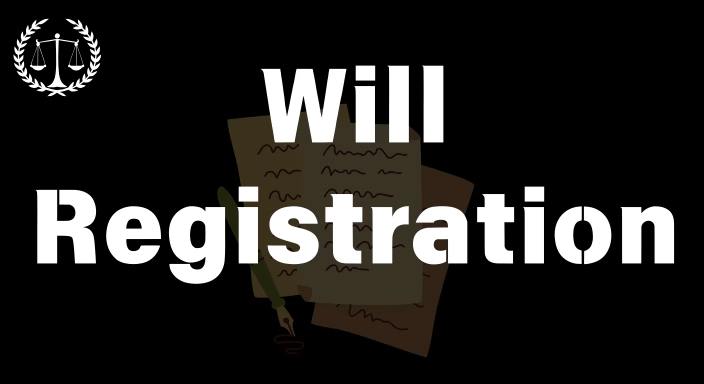Will – Overview
A will is a legal document that specifies how a person’s property and other assets will be distributed after their death. A will cannot be used while the testator (the person writing the will) is still alive; it becomes effective only after the testator’s death.
In India, registering a will is not compulsory, but it is recommended to ensure its legitimacy and to prevent conflicts between heirs after the death of the testator.
A Will Contains the Following:
- Details of the Testator: Information about the person making the will.
- Details of Legatees: The people who will receive the testator’s assets.
- Details of the Executor: The person who will execute the will after the testator’s death.
- Distribution of Assets: Specifies how the testator’s property and assets will be divided among the beneficiaries.
Pre-Requisites for Will Registration:
- Testator’s ID proof (Aadhar Card, PAN card, driver’s license, etc.).
- Testator’s passport-size photograph.
- Mental fitness certificate from a registered healthcare provider.
- A drafted will that outlines the testator’s property and how it will be distributed among the beneficiaries.
- Two witnesses with their ID proofs.
Procedure for Creating and Registering a Will:
- Hire a lawyer to discuss your intention of creating a will.
- The lawyer will draft the will according to your instructions.
- Visit the office of the sub-registrar for will registration. The testator must be personally present, along with two witnesses.
- The will is registered after scrutiny to ensure that it is legally sound. A nominal fee is usually charged for registration.
- After the will is registered, the testator can collect it within a week. If not collected, the will is kept at the registrar’s office and can only be released after the testator’s death. The executor must provide the death certificate to collect it.
Legal Considerations as per Section 59 of the Indian Succession Act:
- A minor cannot make a will.
- The person making the will must be mentally sound.
- A will made under duress, coercion, or undue influence (such as threats, intoxication, or manipulation) is considered invalid.

